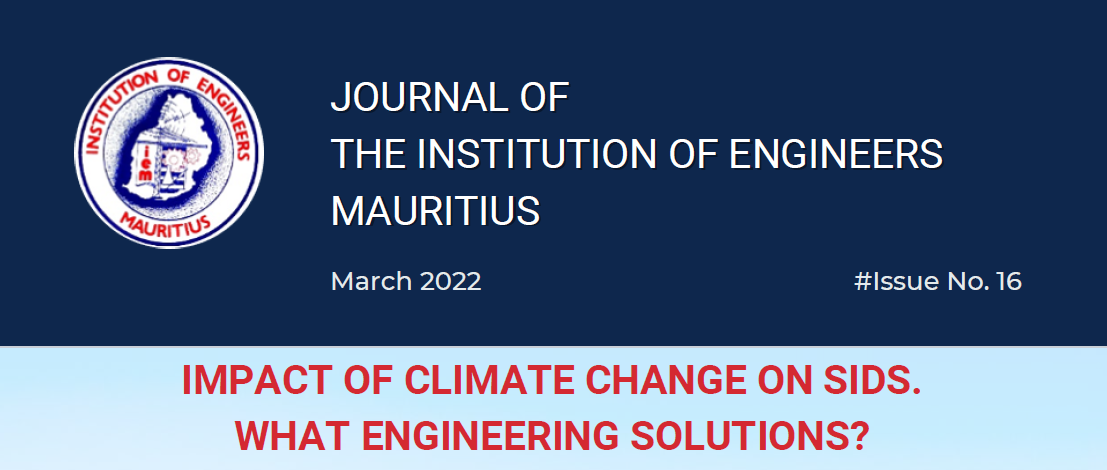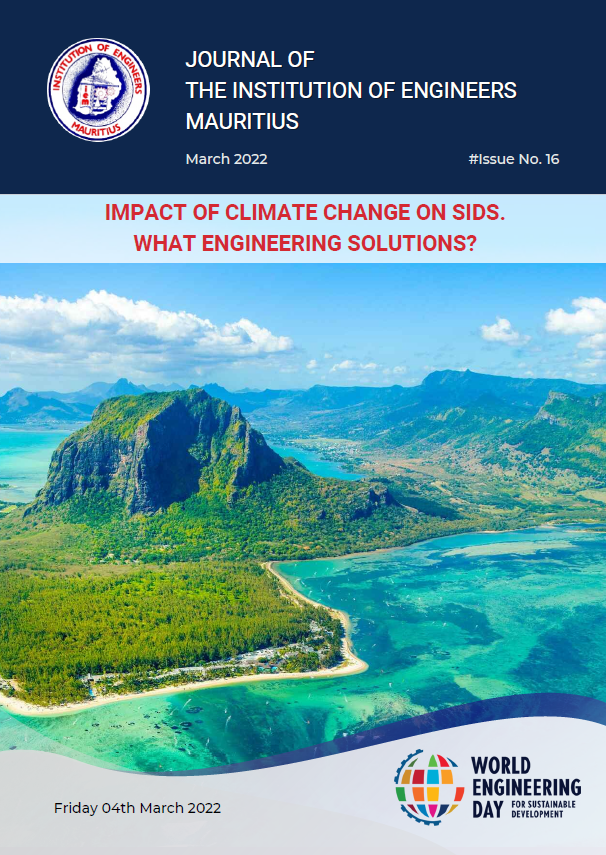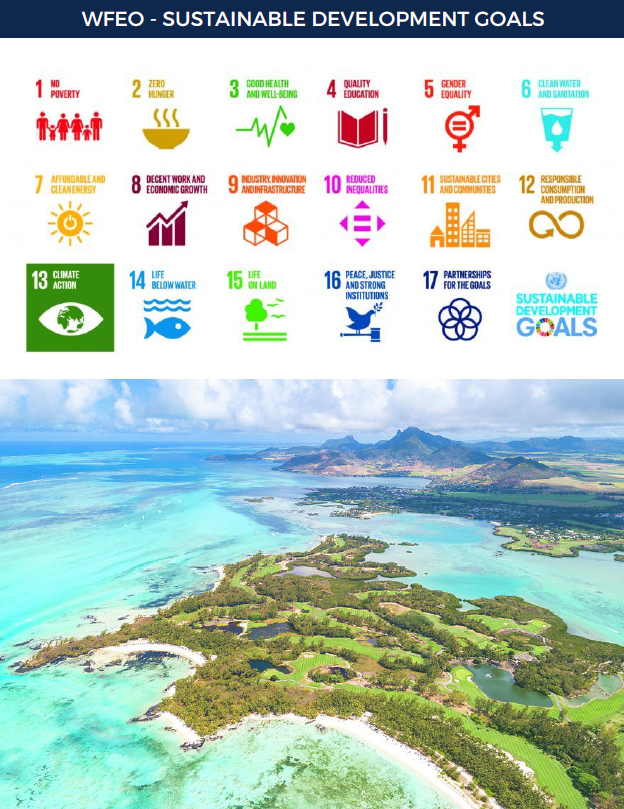

The Institution of Engineers Mauritius, led by President Shyam Roy, collaborated with engineers in Mauritius and internationally to publish a special journal, “Impact of Climate Change on SIDS, What Engineering Solutions?” (available in this link).
Engineers from Mauritius and around the world presented their work to mitigate the risk of natural disasters and to demonstrate the work of engineers in addressing a wide range of the United Nations Sustainable Development Goals.
 This volume is very timely, as in the past two years of the pandemic, the Republic of Mauritius, like many other Small Island Developing States, has been dealing with controlling the spread of the virus and its economic impact. The beauty of Mauritius attracts tourists from around the world. This industry which is the mainstay of the economy has been severely disrupted with the restrictions on travel. There has also been a loss of export income, such as seafood, textiles and sugar due to disruptions in global demand. In the post pandemic years, engineers will be needed like never before to build infrastructure including roads, water supply networks, communications systems and manufacturing and other facilities as the economy recovers.
This volume is very timely, as in the past two years of the pandemic, the Republic of Mauritius, like many other Small Island Developing States, has been dealing with controlling the spread of the virus and its economic impact. The beauty of Mauritius attracts tourists from around the world. This industry which is the mainstay of the economy has been severely disrupted with the restrictions on travel. There has also been a loss of export income, such as seafood, textiles and sugar due to disruptions in global demand. In the post pandemic years, engineers will be needed like never before to build infrastructure including roads, water supply networks, communications systems and manufacturing and other facilities as the economy recovers.
The volcanic eruption and tsunami that followed in Tonga in January 2022, is a reminder to the world of the natural hazard risks faced by the Small Island Developing States (SIDS). The Republic of Mauritius is no exception, exposed to many natural hazards notably cyclones, tsunamis, torrential precipitation, landslides, and droughts. Mauritius is also highly vulnerable sea level rise, driven by the effects of climate change. The article in the special journal shows that engineers have an important role to play in analysing the exposures to natural disasters and designing and implementing appropriate measures to manage these risks.
 The pandemic has also severely disrupted education with school closures required to control the spread of the virus. Ensuring education at school and in colleges and universities will be essential for the future of Mauritius. This is particularly true for engineering education. There is a positive correlation between the number of engineers in an economy and economic development. The World Federation of Engineering Organisations is proud to be collaborating and supporting Mauritius to develop its engineering education system so that it has more engineers with the right skills for sustainable development.
The pandemic has also severely disrupted education with school closures required to control the spread of the virus. Ensuring education at school and in colleges and universities will be essential for the future of Mauritius. This is particularly true for engineering education. There is a positive correlation between the number of engineers in an economy and economic development. The World Federation of Engineering Organisations is proud to be collaborating and supporting Mauritius to develop its engineering education system so that it has more engineers with the right skills for sustainable development.
The release of this important publication is therefore very timely. WFEO congratulates its national member from Mauritius, the Institution of Engineers Mauritius for this achievement. Many young people in particular will be inspired by the breadth of work of engineers that is showcased in this important publication and the positive impact that engineers have on their country and for sustainable development so that no one is left behind.
Contribution by: Dr Marlene Kanga, WFEO President 2017-2019.
For more information:
Special Journal issued by Institution of Engineers Mauritius, World Engineering Day 4th March 2022
Institution of Engineers Mauritius website
APR
2022
